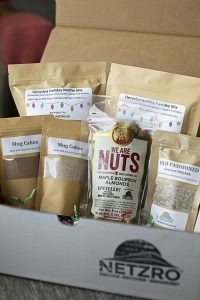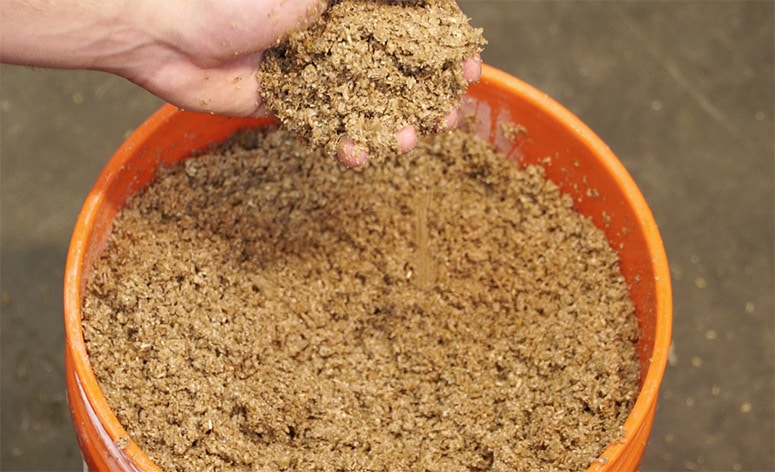What’s the number one solution to mitigating climate change, according to Project Drawdown? Eliminating food waste. Nearly 40% of food produced in the U.S.—126 billion pounds each year—is tossed or dumped into landfills where it emits methane gas, a major contributor to climate change. Worldwide that represents a food loss of over $1 trillion.
With the emergence of the Upcycled Food Association (UFA) in 2019 and the innovations of food entrepreneurs, customers can now engage in the solution, while enhancing food security and resources. “There hasn’t been an industry focusing on food waste until now,” says Turner Wyatt, UFA’s CEO.
UFA’s nearly 170 members, representing 20 countries, upcycle food waste into nutritious foods and ingredients—creating a food economy worth about $46 billion. “Upcycled” is defined as foods that “use ingredients that otherwise would not have gone to human consumption, are procured and produced using verifiable supply chains, and have a positive impact on the environment.” Items such as coffee grounds, fruit juice pulp, “ugly” produce, “spent grain” from breweries, eggshells, soymilk pulp, and salmon skins have been transformed into high-protein, high-fiber flours, snacks, whole fruit chocolates, nutraceuticals, soil amendments and more.
This “Top 10 food trend” for 2021 is seen as a category distinct from conventional or organic. Major food giants such as Dole, Kroger, and Anheuser Busch are actively involved in upcycling projects.
NETZRO: Reduce, Recover, Reharvest

Sue Marshall, CEO of NETZRO
NETZRO of Minneapolis has established a unique platform using proprietary technology to power the safe capture and conversion of food and beverage products into sustainable ingredients. When founder and CEO Sue Marshall, acting on a call from her children to “do something that matters,” discovered the food waste problem, she plunged in. Her company launched in 2015; the design team introduced an infrared drying process that decreases volume of waste, recaptures water, eliminates harmful bacteria, and preserves nutrient value. After recovery, nutrients are “reharvested” into products for humans and animals.
Working from a lab in Lino Lakes, Minnesota, the company originally focused on eggshell waste. Currently working with a large liquid egg plant in Howard Lake, MN producing 10 tons of waste per week (minimum), NETZRO’s equipment separates the membrane from the shell to recover collagen protein and calcium carbonate. These ingredients can be manufactured as food, supplements, and industrial products.
The next venture was assisting brewers with processing their spent grain. NETZRO dries the wet grain mash, which is then ground or milled into a dense, high protein/high fiber flour for use in baked goods. Collaboration with Utepils Brewery showed that the life of the grain could be extended, transforming an end product into a new beginning. NETZRO works with Tattersall Distilling, rescuing tons of spent rye and corn grains each week. The grain is restored on site, milled and packaged, then sold through wholesale, retail, and restaurant channels.
“We license the platform and technology, and sell upcycled food ingredients,” Sue said. The company now handles eight breweries in a 3-mile radius in northeast MN, using a “hub and spoke” model. In 2020 NETZRO formed the Twin Cities Spent Grain Coop, working with breweries to launch a direct-to-consumer spent grain flour blend.

NETZRO upcycled pancake and muffin mixes and other products made from spent brewers’ grain
While COVID’s arrival brought challenges, it also presented some silver linings. “It really became a turning point for the upcycled food movement,” Sue said. A founding member of UFA, Sue saw its membership soar as more people became aware of food access issues and food’s climate impacts. With drying equipment halted and flour supplies low, bakers and manufacturers began experimenting with NETZRO’s reserve supply of spent grain. “It gave UFA time to create awareness, and develop a relationship with companies like Kroger,” Sue added.
NETZRO, a Certified B corporation, has seen its licensing platform draw the attention of very large companies—one owns 27 craft breweries, for instance, and wants to put the equipment in each one. “I wasn’t expecting this kind of growth,” Sue said. “We have to consider the impacts these relationships will have, in light of our long-term vision on food waste.”
Another upcycler, Rise began by collecting discarded malted barley grain from a Brooklyn brewery and converting it into a high protein/low carb delicious “superflour.” Rise is now consulting with Anheuser Busch on grain waste. “This …waste…should be an ingredient, it should be food. It doesn’t need to go to the landfill,” said founder Bertha Jimenez.
Beyond net zero waste
Sue is encouraged by opportunities in agriculture presenting for the younger generation—technological and food science advances and social enterprise avenues abound. “Farmers want to do regenerative agriculture, try new things—but they need support and convincing revenue models. We want to share this success throughout the food chain, and be enablers for new food companies to launch using these re-harvested ingredients.”









